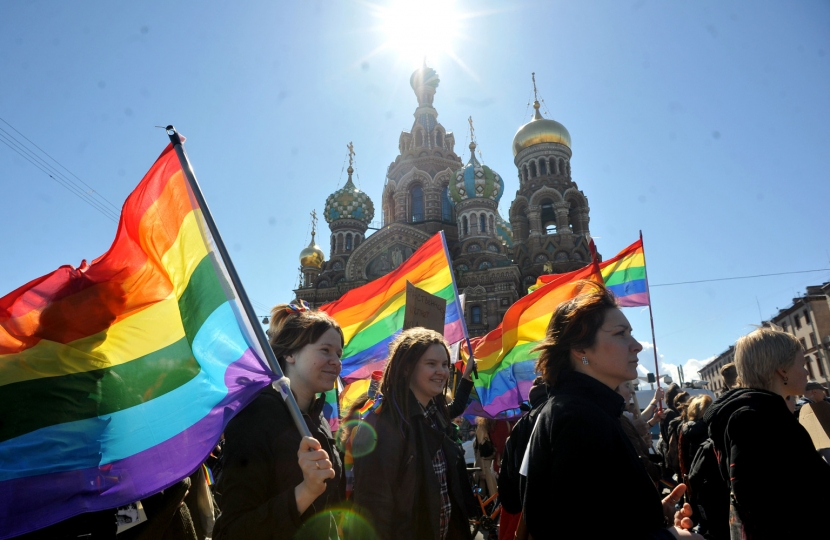
1) What is the “anti-gay” law?
In June this year Russian lawmakers voted to adopt Federal Law 135-FZ banning “propaganda about non-traditional sexual relations”[1] to minors. This follows on from earlier similar bans at regional level in 10 Russian oblasts, including in St. Petersburg in 2012.
2) Who is backing the law?
436 of 450 Russian lawmakers in the lower house voted for the bill at its final reading. It was sponsored by centre-left parliamentarian Elena Mizulina. President Putin signed the bill into law on 30 June.
3) What does the law say?
The new rules amend Russian laws on the protection of children from “information harmful to their health and development”. The law does not actually use the word “homosexuality”, but instead bans the spreading information about “non-traditional sexual relations”.
The law does not define “non-traditional sexual relations”. However, breaking the law may incur fines of 50,000-100,000 roubles for individuals, 100,000-200,000 roubles for officials and 1 million roubles for legal entities or suspension of activities for up to 90 (upper limits around £2,000, £4,000 and £10,000 respectively).
The law singles out foreign nationals, who, in addition to the fines, may face forced deportation and imprisonment for up to 15 days.
4) Is the law enforceable?
While there is no definition of “non-traditional sexual relations”, four Dutch activists were detained after explaining the history of LGBT rights in the Netherlands at a youth seminar in Murmansk. A court ruled there was insufficient evidence to prosecute them under the law, however a £60 fine was imposed for a visa irregularity.
5) What has been the response to the law by Conservatives?
Prime Minister David Cameron raised the issue with President Putin during a meeting in Downing Street in June ahead of the G8 Summit. Following the entry into force of the law, the Prime Minister expressed “deep concern about the abuse of gay people in Russia.”
Foreign Office Minister David Lidington has written that he is “deeply concerned by the recent decision of the Russian Federation Council to approve a bill which bans the distribution of ‘gay propaganda’”. He has said that the decision will further marginalise the LGBT community in Russia.
The European Parliament passed a resolution at the bill stage calling on Russia “not to use the concept of ‘traditional values’ to legitimise discrimination against minority groups”. Conservative MEPs voted for this resolution.
6) Is Russia the only country to introduce such a bill?
Ukraine has a similar bill before its parliament (although the parliament’s Committee on Freedom of Speech and Information recently recommended that the bill be withdrawn) and Moldova criminalised the distribution of public information about "any other relations than those related to marriage or family” in July. Lithuania’s 2010 Public Information Act stated that advertisements may not depict or promote a sexual orientation, however this clause was withdrawn in 2011. Nevertheless Lithuanian lawmakers are planning to debate a revision to the law which would impose fines for the “public propagation of homosexual relations”.
[1] http://news.kremlin.ru/media/events/files/41d474079f58ba80dd32.pdf (text of law IN RUSSIAN)
